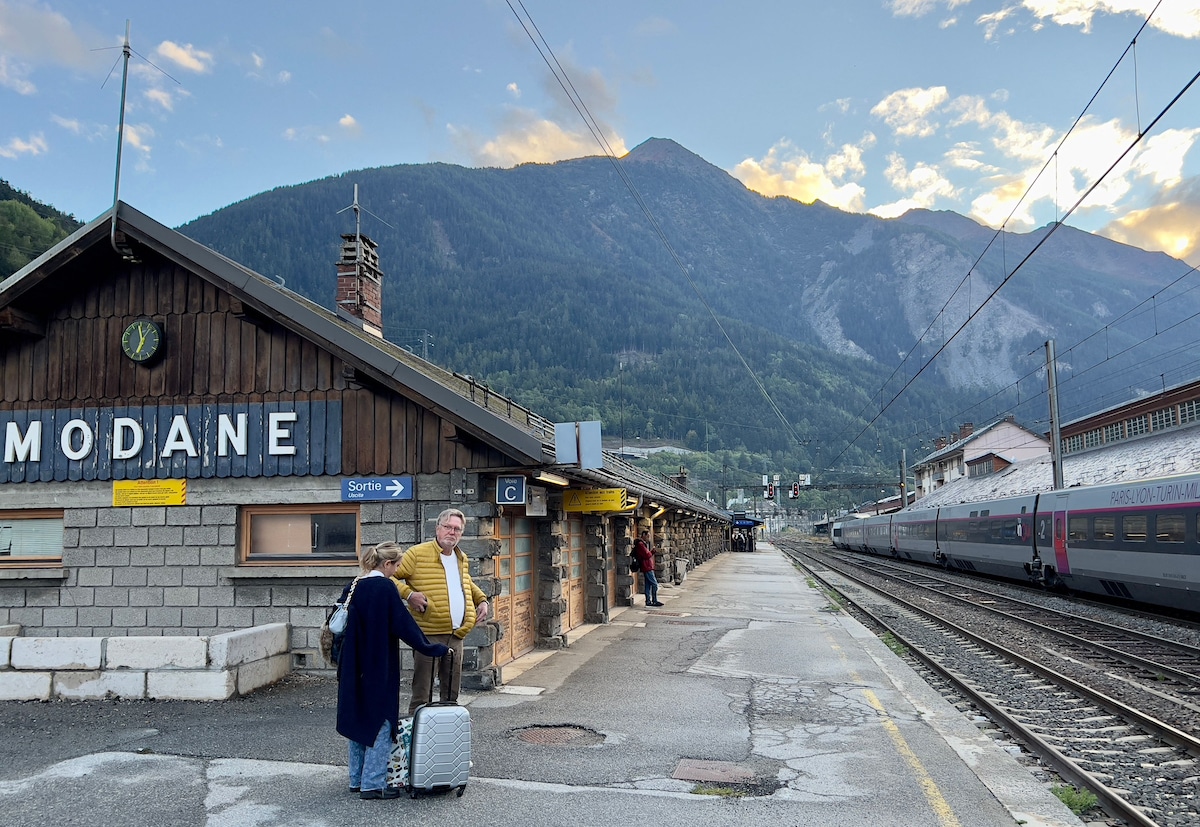European Airlines’ ‘Unfair Competitive Advantage’ Makes Flying Cheaper Than Train Travel Despite Climate Costs

 Why you can trust us
Why you can trust us
Founded in 2005 as an Ohio-based environmental newspaper, EcoWatch is a digital platform dedicated to publishing quality, science-based content on environmental issues, causes, and solutions.
There’s something about taking the train. The slow pace, the observation car where you are treated to a panoramic view of trees, hilly fields and rivers while reading and munching on a snack. Taking the train allows you to see the countryside connecting where you left to where you’re going, not just getting from point A to point B as quickly as possible.
It’s a journey, and it saves on carbon emissions, big time. Walking, biking and taking the train are the most environmentally-friendly ways to travel. Going by rail instead of flying can reduce your emissions by approximately 84 percent for domestic trips, according to Our World in Data.
A new Greenpeace Central and Eastern Europe study has found that people looking for travel options in Europe are being encouraged to fly instead of taking the train because of “an unfair competitive advantage” for the airlines, a press release from Greenpeace said.
The Greenpeace report looked at the costs of tickets for trains and airlines on 112 European routes at nine different times. It found that, on average, train tickets were twice as expensive as those for flights, with some routes astronomically higher. For example, the cost of a train ticket from London to Barcelona was 30 times higher than a plane ticket.
“One of the reasons people choose to fly rather than travel by train is price: why would anyone take the train from London to Barcelona and pay up to €384 when air tickets are available for the ridiculously low price of €12.99? Citizens deserve to have access to a clean, efficient and affordable transport system that does not harm the climate, people and our planet,” the report said.
Even though flying is so much worse for the planet than traveling by train, airlines don’t have to pay tax on kerosene, the main component of jet fuel, the press release said. There is no equivalent exemption for railways.
“Airlines benefit from outrageous fiscal advantages. Planes pollute far more than trains, so why are people being encouraged to fly? Low-cost airlines, in particular, have exploited every loophole and trick in the book. €10 airline tickets are only possible because others, like workers and taxpayers, pay the true cost,” said Lorelei Limousin, Greenpeace EU senior climate campaigner, in the press release.
Of the routes looked at for the study, 18 were domestic and 94 crossed country borders. On 71 percent of the routes, flights were cheaper than train tickets. Just 23 routes were “almost always” less expensive to make by train rather than flying.
Of the routes studied, 79 percent were operated by low-cost airlines, which “are in most cases cheaper than rail thanks to their unfair and aggressive pricing strategies,” the press release said.
“In short: if you fly, you are subsidised; if you take the train, you are punished by higher prices – as well as the fact that the journey is often longer,” said Stefan Gössling, a professor at Linnaeus University in Sweden who has studied flight emissions, as The Guardian reported.
In Europe, aviation as a producer of greenhouse gas emissions grew 29 percent from 2009 to 2019, the fastest-growing source in Europe in recent decades, according to the press release.
Greenpeace encourages European governments to introduce affordable, long-term climate tickets to be used for all public transportation means in a country or designated region, adding that they should be compatible with a climate ticket for international use. Revenues for climate tickets could be funded by the phasing out of airline subsidies, a “fair taxation system based on CO2 emissions” and taxes on windfall profits.
“For the planet and people’s sake, politicians must act to turn this situation around and make taking the train the more affordable option, or else we’re only going to see more and more heatwaves like the one currently wreaking total havoc in Spain, Italy, Greece and elsewhere,” Limousin said in the press release.
Subscribe to get exclusive updates in our daily newsletter!
By signing up, you agree to the Terms of Use and Privacy Policy & to receive electronic communications from EcoWatch Media Group, which may include marketing promotions, advertisements and sponsored content.

 233k
233k  41k
41k  Subscribe
Subscribe 




